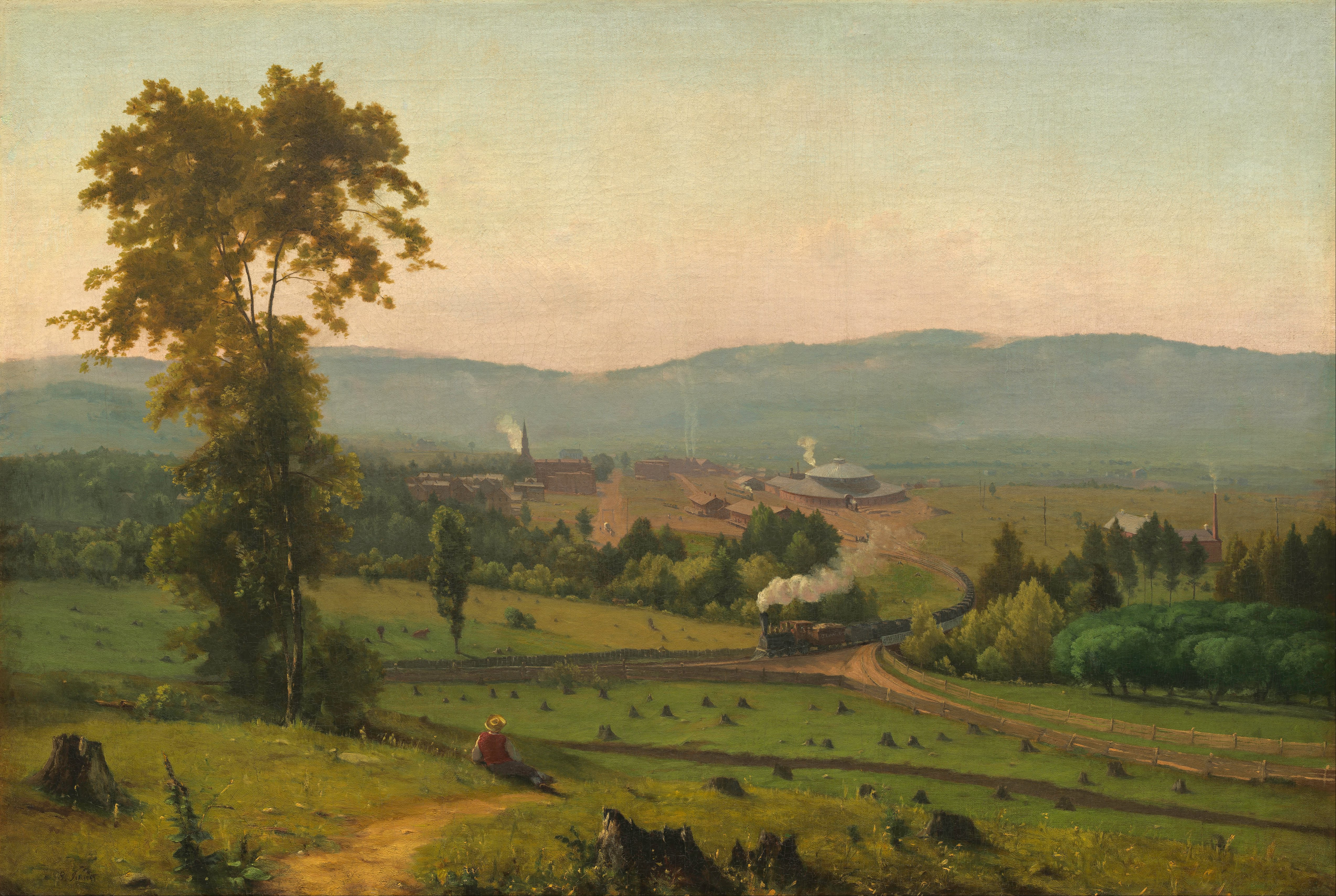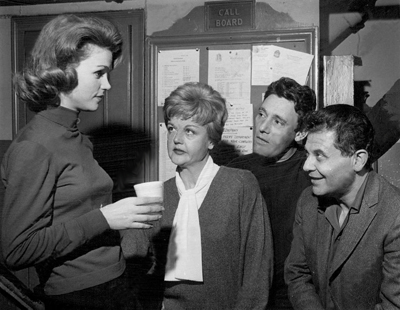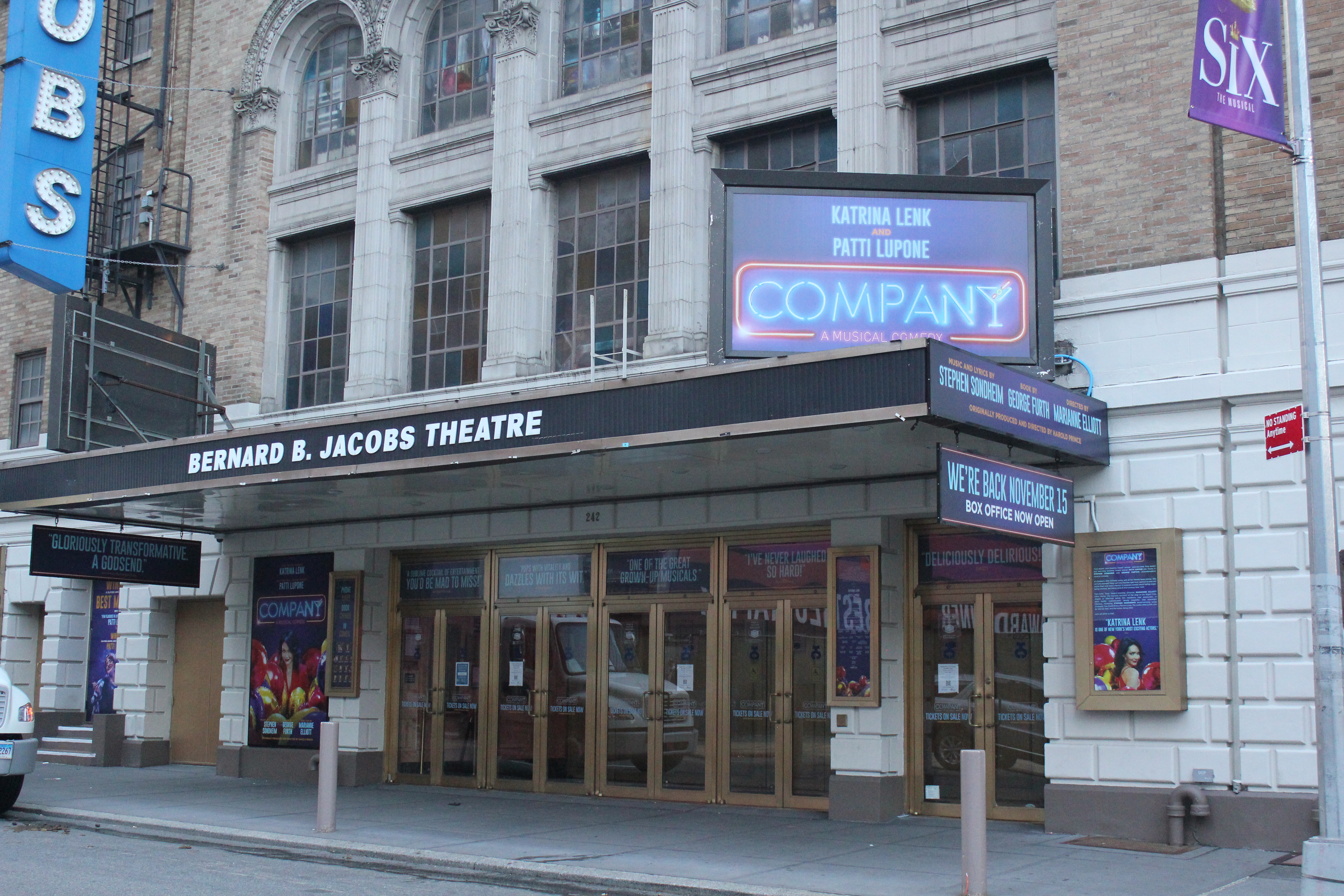|
Walter Bobbie
Walter Bobbie (born November 18, 1945) is an American theatre director and actor. Bobbie has directed both musicals and plays on Broadway and Off-Broadway, and was the Artistic Director of the New York City Center Encores! concert series. He directed the long-running Broadway revival of the musical ''Chicago''. His most well-known acting roles were Nicely-Nicely Johnson in the 1992 Broadway revival of ''Guys and Dolls'' and Roger in the original Broadway cast of ''Grease''. Early life Bobbie was born in Scranton, Pennsylvania, and attended the University of Scranton and did graduate work at The Catholic University of America. His family was Polish Roman Catholic, and his father was a coal miner. Bobbie explains what inspired him to work in theater: "My first Broadway show was ''How to Succeed in Business Without Really Trying,'' maybe in 1964. I came in to New York from college in Pennsylvania for the World's Fair...I remember sitting there — I practically had to be held do ... [...More Info...] [...Related Items...] OR: [Wikipedia] [Google] [Baidu] |
Scranton, Pennsylvania
Scranton is a city in and the county seat of Lackawanna County, Pennsylvania, United States. With a population of 76,328 as of the 2020 United States census, 2020 census, Scranton is the most populous city in Northeastern Pennsylvania and the Wyoming Valley metropolitan area, which has a population of 562,037 as of 2020. It is the List of municipalities in Pennsylvania, sixth-most populous city in Pennsylvania. The contiguous network of five City, cities and more than 40 boroughs all built in a straight line in Northeastern Pennsylvania's urban core act culturally and logistically as one continuous city, so while Scranton is a mid-sized city, the larger Scranton/Wilkes-Barre metropolitan area contains half a million residents in roughly 300 square miles (780 km2). Scranton is the cultural and economic center of Northeastern Pennsylvania, a region of the state with over 1.3 million residents. Scranton hosts a United States federal courts, federal court building for the United ... [...More Info...] [...Related Items...] OR: [Wikipedia] [Google] [Baidu] |
Going Up (musical)
''Going Up'' is a musical comedy in three acts with music by Louis Hirsch and book and lyrics by Otto Harbach and James Montgomery. Set in the US city of Lenox, Massachusetts, at the end of World War I, the musical tells the story of a writer turned aviator who wins the hand of the high society girl that he loves by his daring handling of the joystick of a biplane. Popular songs included "Hip Hooray", "If You Look in Her Eyes", "Kiss Me", "Going Up", "Do It for Me", "The Tickle Toe", and "Down! Up! Left! Right!". The musical was a hit on Broadway in 1917 and again the following year in London. Revivals and a film adaptation followed. Background and productions The development of aviation and flying in the early years of the 20th century captivated the public's attention. ''Going Up'' is based on a 1910 play, ''The Aviator'', by James Montgomery. The play took on new significance during World War I. The musical was produced by George M. Cohan and Sam H. Harris and, afte ... [...More Info...] [...Related Items...] OR: [Wikipedia] [Google] [Baidu] |
Tony Award
The Antoinette Perry Award for Excellence in Broadway Theatre, more commonly known as a Tony Award, recognizes excellence in live Broadway theatre. The awards are presented by the American Theatre Wing and The Broadway League at an annual ceremony in Manhattan. The ceremony is usually held in June. The awards are given for Broadway productions and performances. One is also given for regional theatre. Several discretionary non-competitive awards are given as well, including a Special Tony Award, the Tony Honors for Excellence in Theatre, and the Isabelle Stevenson Award. The awards were founded by theatre producer and director Brock Pemberton. They are named after Antoinette "Tony" Perry, an actress, producer and theatre director who was co-founder and secretary of the American Theatre Wing. The trophy consists of a spinnable medallion, with faces portraying an adaptation of the comedy and tragedy masks, mounted on a black base with a pewter swivel. The rules for the ... [...More Info...] [...Related Items...] OR: [Wikipedia] [Google] [Baidu] |
Roundabout Theatre
The Roundabout Theatre Company is a non-profit theatre company based in Midtown Manhattan, New York City, affiliated with the League of Resident Theatres. History The company was founded in 1965 by Gene Feist, Michael Fried and Elizabeth Owens. Originally housed at a Chelsea, Manhattan, grocery store, on 26th Street, it moved to the nearby 23rd Street Theatre in 1972, performing there until their lease expired in 1984. Following that, Roundabout leased the theatre space at 44 Union Square until that lease expired in 1990. The company then moved into the Criterion Center in Times Square, a two-auditorium complex. Roundabout used the larger Stage Right space as a small Tony Award-eligible theater while the smaller second theater became the first version of the Laura Pels Theatre. Notable productions during Roundabout's tenure at the Criterion include the 1993 revival of Eugene O'Neill's ''Anna Christie'' (featuring Liam Neeson and Natasha Richardson in their Broadway debuts), ... [...More Info...] [...Related Items...] OR: [Wikipedia] [Google] [Baidu] |
A Grand Night For Singing
A, or a, is the first letter and the first vowel letter of the Latin alphabet, used in the modern English alphabet, and others worldwide. Its name in English is '' a'' (pronounced ), plural ''aes''. It is similar in shape to the Ancient Greek letter alpha, from which it derives. The uppercase version consists of the two slanting sides of a triangle, crossed in the middle by a horizontal bar. The lowercase version is often written in one of two forms: the double-storey and single-storey . The latter is commonly used in handwriting and fonts based on it, especially fonts intended to be read by children, and is also found in italic type. In English, '' a'' is the indefinite article, with the alternative form ''an''. Name In English, the name of the letter is the ''long A'' sound, pronounced . Its name in most other languages matches the letter's pronunciation in open syllables. History The earliest known ancestor of A is ''aleph''—the first letter of the Phoenician ... [...More Info...] [...Related Items...] OR: [Wikipedia] [Google] [Baidu] |
Revue
A revue is a type of multi-act popular theatre, theatrical entertainment that combines music, dance, and sketch comedy, sketches. The revue has its roots in 19th century popular entertainment and melodrama but grew into a substantial cultural presence of its own during its golden years from 1916 to 1932. Though most famous for their visual spectacle, revues frequently satirized contemporary figures, news or literature. Similar to the related subforms of operetta and musical theatre, the revue art form brings together music, dance and sketches to create a compelling show. In contrast to these, however, revue does not have an overarching storyline. Rather, a general theme serves as the motto for a loosely related series of acts that alternate between solo performances and dance ensembles. Owing to high ticket prices, wikt:ribald, ribald publicity campaigns and the occasional use of wikt:prurient, prurient material, the revue was typically patronized by audience members who earned mo ... [...More Info...] [...Related Items...] OR: [Wikipedia] [Google] [Baidu] |
Rodgers And Hammerstein
Rodgers and Hammerstein was a theater-writing team of composer Richard Rodgers (1902–1979) and lyricist-dramatist Oscar Hammerstein II (1895–1960), who together created a series of innovative and influential American musicals. Their musical theater writing partnership has been called the greatest of the 20th century. Their popular Broadway productions in the 1940s and 1950s initiated what is considered the "golden age" of musical theater. Gordon, John Steele''Oklahoma!''. Retrieved June 13, 2010 Five of their Broadway shows, ''Oklahoma!'', '' Carousel'', '' South Pacific'', '' The King and I'' and ''The Sound of Music'', were outstanding successes, as was the television broadcast of ''Cinderella'' (1957). Of the other four shows the pair produced on Broadway during their lifetimes, '' Flower Drum Song'' was well-received, and none was a critical or commercial flop. Most of their shows have received frequent revivals around the world, both professional and amateur. Among the ... [...More Info...] [...Related Items...] OR: [Wikipedia] [Google] [Baidu] |
Saint Joan (play)
''Saint Joan'' is a play by George Bernard Shaw about 15th-century French military figure Joan of Arc. Premiering in 1923, three years after her canonization by the Roman Catholic Church, the play reflects Shaw's belief that the people involved in Joan's trial acted according to what they thought was right. He wrote in his preface to the play: There are no villains in the piece. Crime, like disease, is not interesting: it is something to be done away with by general consent, and that is all here isabout it. It is what men do at their best, with good intentions, and what normal men and women find that they must and will do in spite of their intentions, that really concern us. Michael Holroyd has characterised the play as "a tragedy without villains" and also as Shaw's "only tragedy". John Fielden has discussed further the appropriateness of characterising ''Saint Joan'' as a tragedy. The text of the published play includes a long Preface by Shaw. Characters and premiere ca ... [...More Info...] [...Related Items...] OR: [Wikipedia] [Google] [Baidu] |
Carnegie Hall
Carnegie Hall ( ) is a concert venue in Midtown Manhattan, New York City. It is at 881 Seventh Avenue (Manhattan), Seventh Avenue, occupying the east side of Seventh Avenue between 56th Street (Manhattan), 56th and 57th Street (Manhattan), 57th Streets. Designed by architect William Burnet Tuthill and built by its namesake, industrialist and philanthropist Andrew Carnegie, it is one of the most prestigious venues in the world for both classical music and popular music. Carnegie Hall has its own artistic programming, development, and marketing departments and presents about 250 performances each season. It is also rented out to performing groups. Carnegie Hall has 3,671 seats, divided among three auditoriums. The largest one is the Stern Auditorium, a five-story auditorium with 2,804 seats. Also part of the complex are the 599-seat Zankel Hall on Seventh Avenue, as well as the 268-seat Joan and Sanford I. Weill Recital Hall on 57th Street. Besides the auditoriums, Carnegie Hall ... [...More Info...] [...Related Items...] OR: [Wikipedia] [Google] [Baidu] |
Anyone Can Whistle
''Anyone Can Whistle'' is a musical with music and lyrics by Stephen Sondheim, and a book by Arthur Laurents. Described as "a satire on conformity and the insanity of the so-called sane," the show tells a story of an economically depressed town whose corrupt mayor decides to create a fake miracle in order to attract tourists. The phony miracle draws the attention of an emotionally inhibited nurse, a crowd of inmates from a local asylum, and a doctor with secrets of his own. Following a tryout period in Philadelphia, ''Anyone Can Whistle'' opened at the Majestic Theatre on Broadway on April 4, 1964. The show received widely varied reviews (including negative notices from the ''New York Times'' and the ''New York Herald Tribune''), and closed after a run of twelve previews and nine performances. The show's original run marked the stage musical debut of Angela Lansbury. In the decades since its closing, ''Anyone Can Whistle'' has seen relatively few productions compared to other ... [...More Info...] [...Related Items...] OR: [Wikipedia] [Google] [Baidu] |
Assassins (musical)
''Assassins'' is a musical with music and lyrics by Stephen Sondheim and a book by John Weidman, based on an original concept by Charles Gilbert Jr. Using the framing device of an all-American, yet sinister, carnival game, the semi-revue portrays a group of historical figures who attempted (successfully or not) to assassinate Presidents of the United States, and explores what their presence in American history says about the ideals of their country. The score is written to reflect both popular music of the various depicted eras and a broader tradition of "patriotic" American music. The musical opened Off-Broadway in 1990 to many mixed and negative reviews, and ran for 73 performances; in 2004, the show was produced on Broadway to highly favorable notices and won five Tony Awards, including Best Revival of a Musical. Background and productions Background In 1979, as a panelist at producer Stuart Ostrow's Musical Theater Lab, Sondheim read a script by playwright Charles Gil ... [...More Info...] [...Related Items...] OR: [Wikipedia] [Google] [Baidu] |
Company (musical)
''Company'' is a Musical theatre, musical with music and lyrics by Stephen Sondheim and book by George Furth. The original 1970 production was nominated for a record-setting 14 Tony Awards, winning six. ''Company'' was among the first book musicals to deal with contemporary dating, marriage, and divorce,''Broadway: the American musical'', episode 5: "Tradition (1947–1979)", 2004. and is a notable example of a concept musical lacking a linear plot. In a series of vignette (literature), vignettes, ''Company'' follows bachelor Bobby interacting with his married friends, who throw a party for his 35th birthday. Background George Furth wrote 11 one-act plays planned for Kim Stanley. Anthony Perkins was interested in directing and gave the material to Sondheim, who asked Harold Prince for his opinion. Prince said the plays could be a good basis for a musical about New York marriages with a central character to examine those marriages. Synopsis In the early 1990s, Furth and Sondheim ... [...More Info...] [...Related Items...] OR: [Wikipedia] [Google] [Baidu] |




